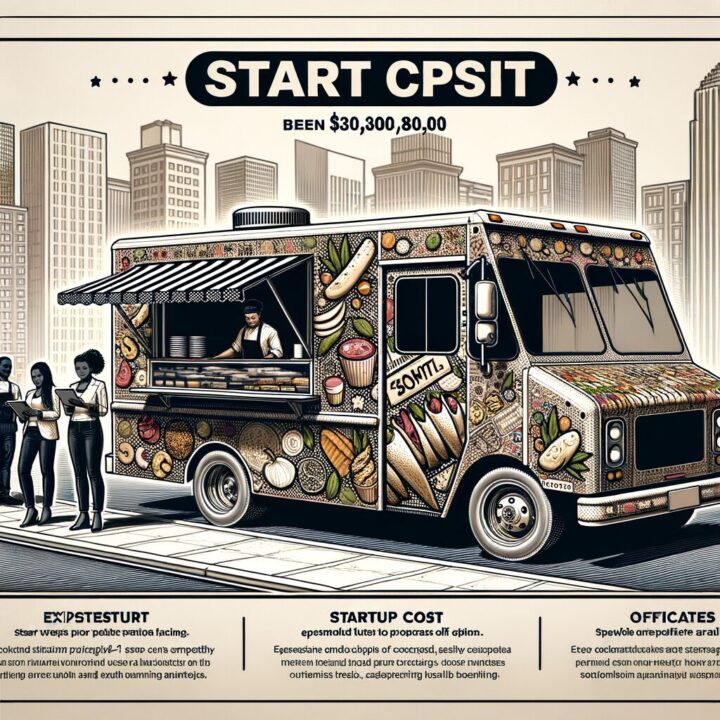Low-cost business ideas for beginners: Starting a business doesn’t have to require huge amounts of startup capital or investment. With careful planning and creativity, it’s possible for beginners to launch successful ventures on a budget. This guide covers 10 ingenious low-cost business ideas perfect for first-time entrepreneurs.
Getting your own business off the ground is an exciting milestone. But new entrepreneurs often face cash constraints, making affordable startup ideas essential. The good news is some businesses can be started for very little money with the right approach.
- 1 Low-cost business ideas for beginners
- 2 🍔 Food Businesses
- 3 🛠 Crafts and Making
- 4 💻 Tech and Apps
- 5 📝 Creative Services
- 6 ➕ Other Smart Low-Cost Ideas
- 7 Key Tips for Beginner Entrepreneurs with Low-Budget Businesses
- 8 How Do Low-Cost Business Startups Compare to High Investment Ideas?
- 9 🤔 Frequently Asked Questions
- 10 In Closing
Low-cost business ideas for beginners
Read on for low-budget business concepts matched to different interests and skills from food to tech to crafts. With drive and hustle, these money-wise ideas can turn into thriving enterprises.
🍔 Food Businesses
1. Food Truck


Tap into the wildly popular street food scene by launching your own specialty food truck. Focus on signature dishes that stand out from the competition. Market heavily on social media and park at busy events and office areas. Keep costs low by starting with just 1-2 staff in a used truck. Expected startup costs: $30,000-$80,000.
2. Home Bakery


Passionate bakers can start small by selling homemade cakes, pies, cookies and more from your own kitchen. Check cottage food laws in your state. Use food networking sites to advertise. Offer custom baked goods for birthdays and holidays. Scale up over time by renting a commercial kitchen. Expected startup costs: $2,000-$5,000.
🛠 Crafts and Making
3. Jewelry Making


Make and sell fashionable jewelry from home with minimal startup costs. Focus on trendy earrings and necklaces to start. Sell on Etsy and do local pop-up shops and craft fairs. As you grow, expand into more customized and expensive pieces. Expected startup costs: $500-$2,000.
4. 3D Printing Crafts


Use an affordable consumer 3D printer to create and sell customized jewelry, figurines, vases, and more decorative pieces. Offer customization like engraving names or messages. Sell on eBay, Etsy, and craft sites. Expected startup costs: $800-$1,500.
💻 Tech and Apps


5. App Developer
Launch simple mobile apps as a solo developer in your spare time. Start with basic game apps. Learn programming and hire freelancers if needed. Monetize with ads and in-app purchases. Market your apps heavily in the Google and Apple app stores. Expected startup costs: $50-$200.
6. Tech Support Business
Offer personalized tech support services for local consumers and businesses. Provide services like PC setup, WiFi troubleshooting, virus removal, data backups. Start as a home-based business and expand to serve commercial clients. Expected startup costs: $500-$2,000.
📝 Creative Services


7. Resume Writing Service
Help job seekers create professional resumes optimized to pass screening algorithms and impress hiring managers. Start with affordable base packages. Upsell extra services like cover letter writing and LinkedIn profile makeovers. Expected startup costs: $500-$1,500.
8. Freelance Writer
New freelance writers can get started cheaply. Focus on providing quality content for blog owners, companies, and clients needing website, ad, or social media copy. Build a portfolio of your work. Expected startup costs: $100-$500.
➕ Other Smart Low-Cost Ideas
9. Affiliate Marketing
Earn commissions promoting other companies’ products and services on your website or social media. Sign up as an affiliate for relevant brands. Drive referral traffic by creating detailed reviews and tutorials. Expected startup costs: $100-200.
10. eBay Selling
Selling items on eBay is an easy entry business with minimal startup costs. Start by liquidating unused personal possessions for extra cash. Then move into acquiring inventory like collectibles to sell for a profit. Expected startup costs: $50-$200.
Key Tips for Beginner Entrepreneurs with Low-Budget Businesses
Launching a successful business on a shoestring budget takes careful planning and execution. Keep these tips in mind:
💡 Start lean and scale up cautiously as you gain revenue and feedback. Resist overspending early on.
💰 Take advantage of free marketing channels like social media and word-of-mouth. Get creative.
⚙️ Use technology like Shopify, Wix, and business apps to save time and money. Automate tasks when possible.
🤝 Build partnerships with complementary businesses to expand your network and cut costs.
👨💻 Develop expertise and authority in your niche to stand out from competitors. Offer exceptional value.
📈 Track detailed finances, sales, and metrics from day one to stay lean and profitable. Pivot as needed.
How Do Low-Cost Business Startups Compare to High Investment Ideas?
| Factor | Low-Cost Startup | High Investment Startup |
|---|---|---|
| Upfront capital needed | $0 – $10,000 | $50,000+ |
| Time to launch | Weeks to months | 1-2+ years |
| Scaling difficulty | Easier initially | Faster growth potential |
| Failure risk tolerance | Can fail quickly | Failures are costly |
| Expertise needs | Can learn as you go | Advanced skills required |
| Funding options | Limited | More institutional options |
Affordable startups allow beginners to get a business off the ground faster with less risk. But well-funded startups offer more resources to rapidly grow and scale. Choose your path wisely depending on your goals and risk appetite.
🤔 Frequently Asked Questions
Q: How much money do I need to start a business?
A: The amount of startup capital needed depends heavily on the type of business. Many low-cost models can be started for less than $5,000. Tech startups often require over $50,000. Know your budget and choose ideas that fit.
Q: What basic legal steps do I need to take?
A: Register your business name and establish a legal business entity like an LLC. Obtain necessary licenses and permits. Have contracts and agreements reviewed by a lawyer. Get insurance and handle taxes properly.
Q: Is it better to start online or with a physical location?
A: Online businesses have lower startup costs and wider reach. But physical businesses can establish stronger local connections and credibility. Evaluate your offerings and target market.
Q: How do I fund my low-budget business idea initially?
A: Combine methods like savings, credit cards, business loans, crowdfunding, grants, friends/family, and personal assets. Plan budgets carefully and spend frugally.
Q: How can I promote my new business without spending much?
A: Leverage social media, word-of-mouth referrals, publicity stunts, guest blogging, and trade partnerships. Prioritize free channels first.
In Closing
With drive and creativity, it’s entirely possible for aspiring entrepreneurs to turn low-cost startup ideas into thriving businesses. Don’t let limited budgets hold you back. Start lean, learn as you go, provide value, and reinvest revenue wisely.


